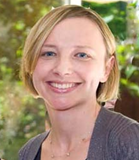Spring Breakfast Forum
Regarding the Resilient Genome How Cells Block Cancer and Age Gracefully
| Date: |
Thursday, March 10, 2011 |
Place: |
1230 York Avenue at 66th Street |
| Registration & Breakfast Buffet: |
7:30 a.m. – 9:00 a.m |
|
Caspary Auditorium |
| Program: |
8:00 - 9:00 a.m. |
|
The Rockefeller University |
| |
|
|
New York City |
 How can we understand the push-and-pull between the aging process in our cells and the loss of control that leads to cancer?
How can we understand the push-and-pull between the aging process in our cells and the loss of control that leads to cancer?
The trillions of cells in our bodies are constantly replenished through a tightly controlled process of cell division. When a cell’s genetic material is compromised, however, there is a risk that the cell will divide uncontrollably. This is one way that cancer can begin. Fortunately, cells are equipped with robust monitoring programs to guard against this outcome. When a cell senses DNA damage, it can try to repair its genome. If the damage is irreversible, it can trigger its own death, or enter a placid state called senescence, where it loses the ability to divide.
In fact, senescence is a natural endpoint in the life of a cell. Laboratory studies have shown that there is a strict limit to the number of times that a normal cell can divide. In contrast, cancer cells never stop dividing. From a biologist’s perspective, they are immortal.
Agata Smogorzewska, one of the newest members of the Rockefeller faculty, is exploring the interwoven questions of cancer and aging in her laboratory located in the University’s Collaborative Research Center, the state-of-the-art research facility that opened in the fall of 2010. She has already made critical discoveries through studies of cancer-prone individuals born with a rare disorder called Fanconi anemia. Research on this genetic disease is providing Dr. Smogorzewska and her colleagues with clues to unlocking the mysteries of DNA repair and tumor suppression. Their work may one day contribute to improved treatments for cancer.
Dr. Smogorzewska, a former student in Titia de Lange’s laboratory, received her Ph.D. from The Rockefeller University in 2002 and her M.D. from the Weill Medical College of Cornell University in 2003. She conducted postdoctoral research at Harvard, returning to Rockefeller in 2009 as an assistant professor heading the Laboratory of Genome Maintenance.